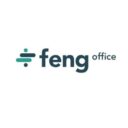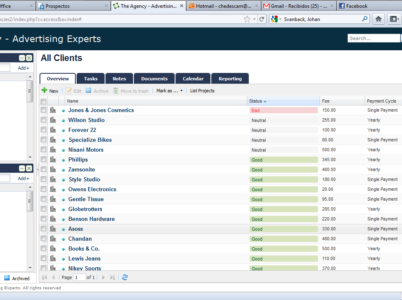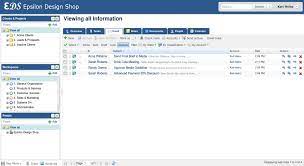ProjectLibre stands out as a powerful, free, and open-source project management software designed to simplify the planning, tracking, and control of projects. This versatile tool empowers users to create tasks, allocate resources, set deadlines, and monitor progress through visual aids such as Gantt charts and network diagrams.

- Collaboration: Feng project management emphasizes collaboration among team members, stakeholders, and project sponsors. Effective communication is key to successful collaboration, and the methodology includes tools and techniques for facilitating communication and fostering teamwork.
- Flexibility: Feng project management recognizes that projects can be unpredictable, and it emphasizes the need for flexibility in project planning and execution. This includes being open to changing project requirements and adapting project plans as needed.
- Iterative development: Feng project management emphasizes an iterative approach to project development, with frequent checkpoints and feedback loops to ensure that the project is progressing according to plan.
- Risk management: Feng project management includes a strong focus on risk management, with strategies for identifying, assessing, and mitigating project risks.
- Continuous improvement: Feng project management emphasizes the importance of continuous improvement, with a focus on learning from past projects and using that knowledge to improve future projects.
- Asana: Asana is a web-based project management tool that offers features for task management, project planning, collaboration, and reporting. It is known for its user-friendly interface and integrations with other business tools.
- Trello: Trello is a visual project management tool that uses cards and boards to help teams organize and prioritize tasks. It is popular among small teams and freelancers due to its simplicity and ease of use.
- Jira: Jira is a popular project management tool for software development teams. It offers features such as issue tracking, agile project management, and collaboration tools.
- Monday.com: Monday.com is a web-based project management tool that offers features for task management, project planning, collaboration, and reporting. It is known for its customizable interface and integrations with other business tools.
- Basecamp: Basecamp is a web-based project management tool that offers features for task management, project planning, collaboration, and reporting. It is known for its simple interface and ease of use.
- Essential
$8 per user per month
- Professional
$14 per collaborator per month and $29 per manager per month
- Enterprise
$19 per collaborator per month and $59 per manager per month
- Collaboration: Feng project management emphasizes collaboration among team members, stakeholders, and project sponsors. It provides tools and techniques for facilitating communication and fostering teamwork, such as online collaboration platforms, shared calendars, and team-building activities.
- Flexibility: Feng project management is designed to be adaptable to different types of projects and environments. It includes strategies for handling changes to project requirements and plans, and for adjusting project timelines and budgets as needed.
- Iterative development: Feng project management emphasizes an iterative approach to project development, with frequent checkpoints and feedback loops. This helps to ensure that the project is progressing according to plan and that any issues are caught early and addressed.
- Risk management: Feng project management includes a strong focus on risk management, with strategies for identifying, assessing, and mitigating project risks. It provides tools and techniques for managing risks, such as risk matrices, risk registers, and contingency planning.
- Continuous improvement: Feng project management emphasizes the importance of continuous improvement, with a focus on learning from past projects and using that knowledge to improve future projects. It includes strategies for conducting post-project reviews and incorporating lessons learned into future projects.
- Resource management: Feng project management includes features for managing project resources, such as team members, equipment, and materials. It provides tools for resource allocation and scheduling, as well as for tracking resource utilization and availability.
- Project tracking and reporting: Feng project management includes features for tracking project progress and generating reports. It provides tools for tracking project milestones, timelines, and budgets, as well as for generating status reports and dashboards.
Overall, Feng project management offers a range of features and tools that can help teams to collaborate effectively, manage risks, track progress, and continuously improve project outcomes.
Feng office project management: Feng office project management is a project management tool that is based on the Feng project management methodology. It is designed to help teams collaborate and manage projects effectively by providing a range of features and tools.

Feng project management emphasizes collaboration among team members, stakeholders, and project sponsors. Effective communication is key to successful collaboration, and the methodology includes tools and techniques for facilitating communication and fostering teamwork.
Feng office and Asana are both project management tools that offer features for task management, project planning, collaboration, and reporting. Here is a comparison of some key features and differences between the Feng office and Asana:
- User interface: Asana has a very intuitive and user-friendly interface that is easy to use, whereas Feng Office has a more complex interface with more customization options.
- Pricing: Asana offers a free version and paid plans that start at $10.99 per user per month. In comparison, Feng Office starts at $9.95 per user per month for the cloud-based version and $590 for a five-user license for the self-hosted version.
- Task management: Both tools offer features for task management, such as assigning tasks, setting deadlines, and creating task lists. However, Asana has a more robust task management system that includes subtasks, dependencies, and custom fields.
- Project management: Both tools offer features for project planning and tracking, such as project templates, Gantt charts, and progress tracking. However, Feng’s office has more advanced project management features, such as resource allocation and budget tracking.
- Collaboration: Both tools offer collaboration features such as commenting, file sharing, and team communication. However, Asana has more advanced collaboration features such as team conversations and built-in video conferencing.
- Integration: Asana has a wider range of integrations with other business tools, whereas Feng office has fewer integrations available.
Feng Office and Monday.com
Feng Office and Monday.com are two different project management software platforms that businesses can use to manage tasks, projects, and teams.
Feng Office is an open-source project management platform that offers features such as project planning, task management, time tracking, document management, and collaboration tools. It can be self-hosted on a company’s server or used as a cloud-based service. Feng Office offers both free and paid plans, with additional features available in the paid plans.
On the other hand, Monday.com is a cloud-based project management software that offers features such as customizable workflows, task assignments, time tracking, project progress monitoring, and team collaboration tools. Monday.com is designed to be user-friendly and offers a visual interface that allows users to manage their tasks and projects easily. It offers a free trial and various pricing plans, depending on the size of the organization and the features required.
Ultimately, the choice between Feng Office and Monday.com will depend on the specific needs and preferences of the organization. Both platforms offer a range of features that can help businesses manage their projects and teams effectively. It’s recommended that organizations try out both platforms and compare the features, user interface, and pricing plans to determine which platform is the best fit for their needs.
Feng Office and Basecamp
Feng Office and Basecamp are two different project management software platforms that businesses can use to manage tasks, projects, and teams. Here’s a comparison of the two:
- Features: Both Feng Office and Basecamp offer features such as project planning, task management, time tracking, document management, and collaboration tools. However, Basecamp also offers features such as message boards, automatic check-ins, and a client portal, while Feng Office offers features such as invoicing and project financials.
- Pricing: Basecamp offers a flat monthly fee for unlimited users and projects, while Feng Office offers both free and paid plans with varying features and user limits. The paid plans for Feng Office are also more affordable than Basecamp.
- User interface: Basecamp offers a simple and user-friendly interface that is easy to navigate, while Feng Office’s interface can be a bit overwhelming for new users.
- Integration: Basecamp integrates with a wide range of third-party apps, while Feng Office has fewer integration options.
- Support: Both platforms offer customer support, but Basecamp offers phone support while Feng Office only offers email support.
Feng Office and Jira
Feng Office and Jira are two different project management software platforms that businesses can use to manage tasks, projects, and teams. Here’s a quick comparison of the two:
- Features: Jira is a more advanced platform that offers features such as agile project management, issue tracking, and software development tools. Feng Office offers features such as project planning, task management, time tracking, and collaboration tools, but does not have the same level of advanced software development features.
- Pricing: Jira is more expensive than Feng Office, with different pricing tiers based on the number of users and additional features required.
- User interface: Jira’s interface can be overwhelming for new users due to its advanced features and customization options, while Feng Office’s interface is more user-friendly.
- Integration: Jira integrates with a wide range of third-party apps, while Feng Office has fewer integration options.
- Support: Both platforms offer customer support, but Jira offers more extensive documentation and community support resources.
Feng Office’s pricing is also affordable, with both free and paid plans available. Its user interface can be a bit overwhelming, but its customer support is responsive and helpful. Overall, Feng Office is a solid project management platform for small to medium-sized businesses that need a comprehensive and affordable solution for managing their projects and teams.
ProjectManager.com emerges as a dynamic web-based project management software, offering teams the tools they need to plan, track, and collaborate on projects in real-time. This versatile platform encompasses a range of features, including task management, resource allocation, team communication, time tracking, and reporting.
ProWorkflow stands out as a cloud-based project management software designed to streamline project workflows for teams and businesses. It provides a comprehensive set of tools, including task management, time tracking, collaboration, invoicing, and reporting, to help organizations stay organized and efficient.






